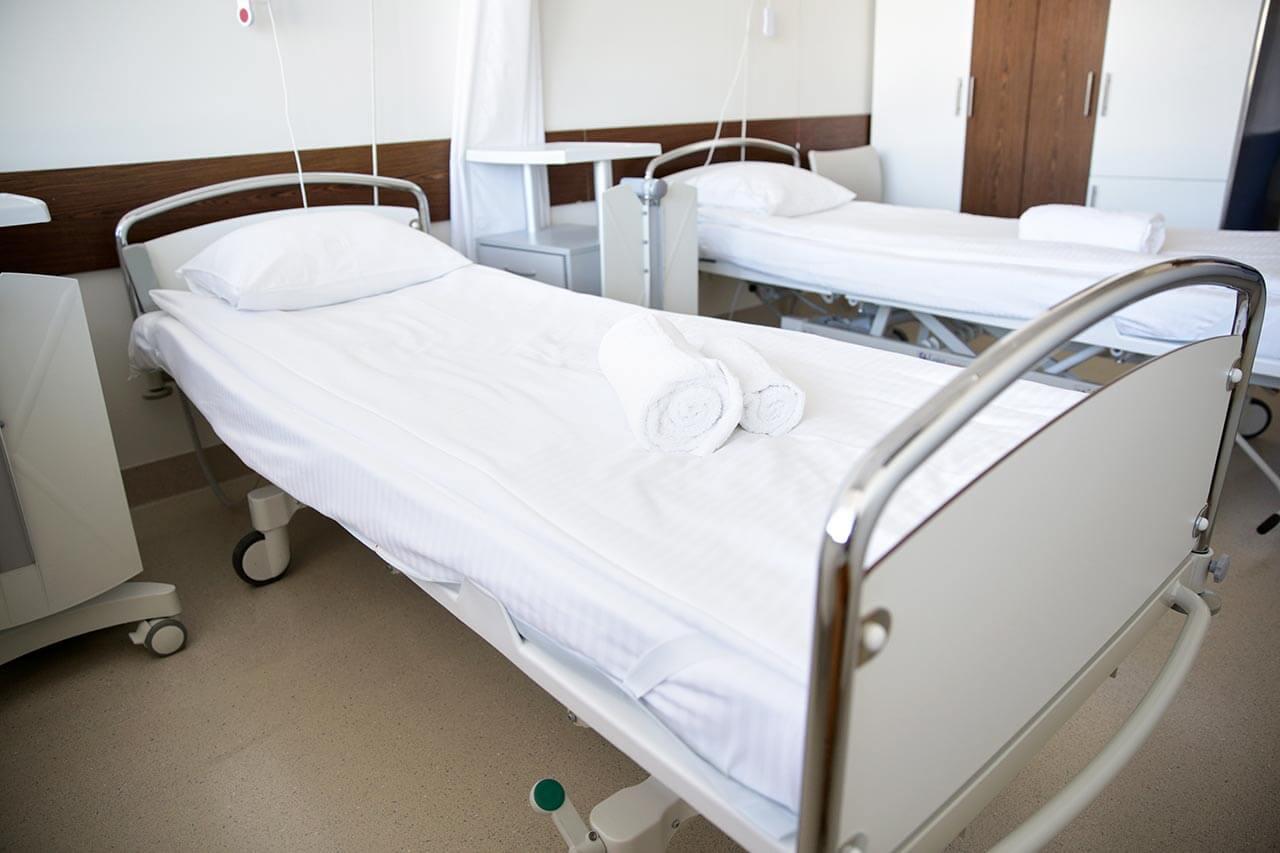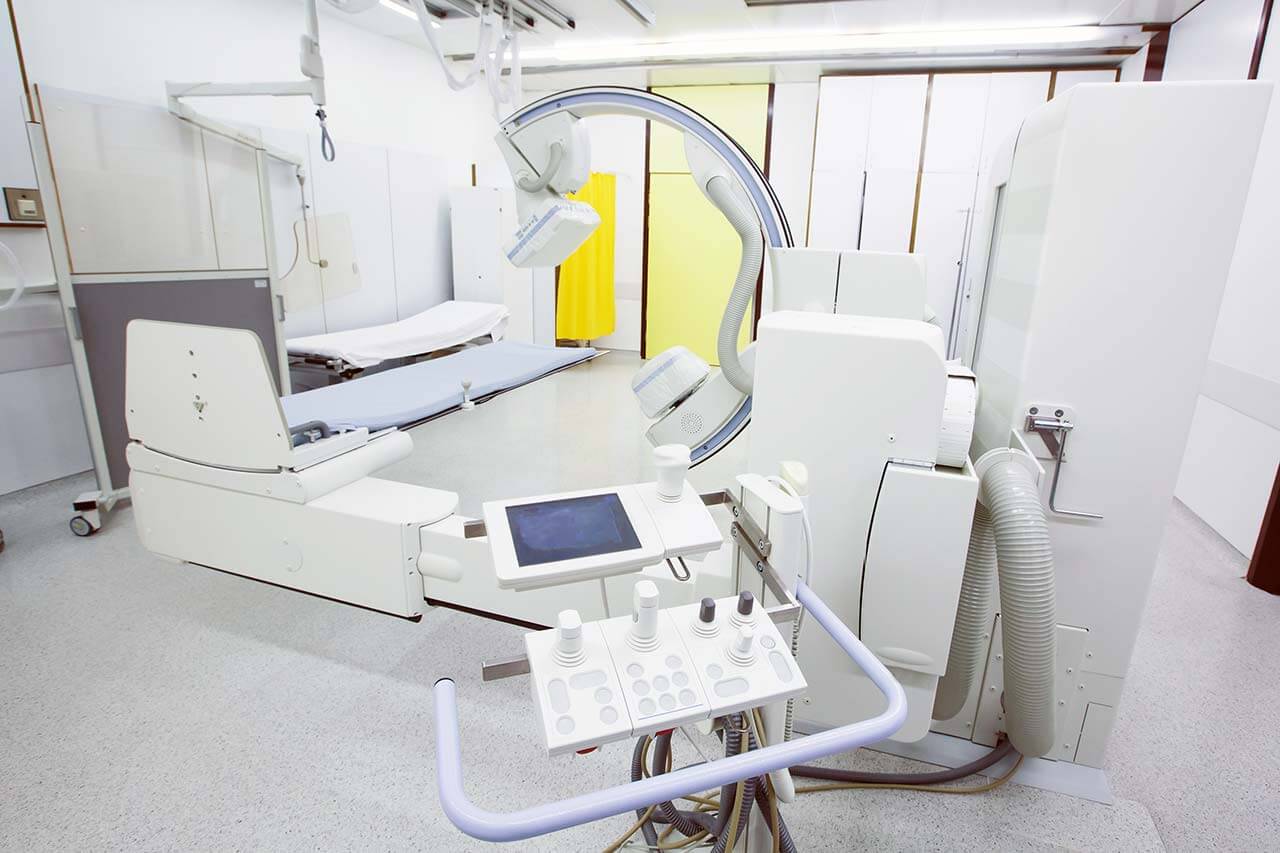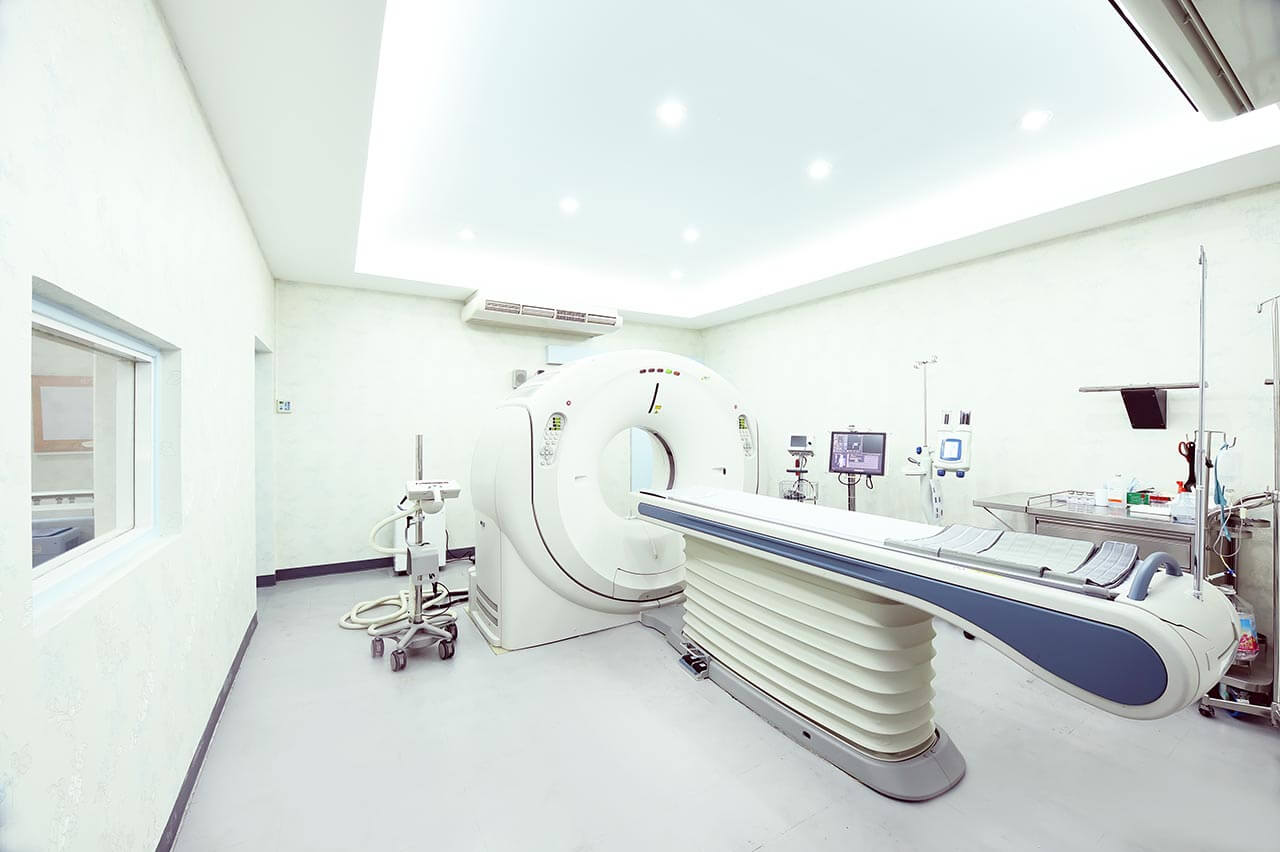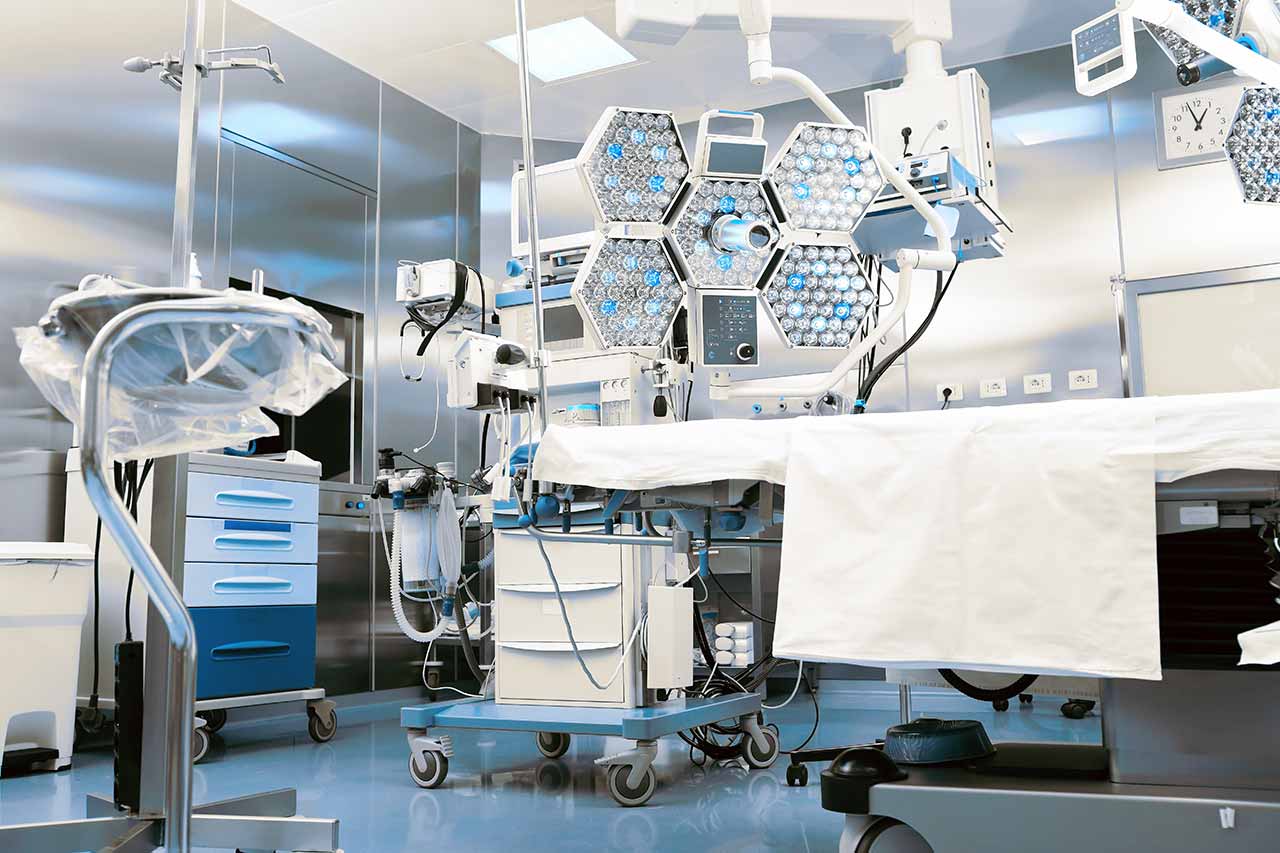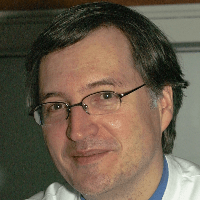
The program includes:
- Initial presentation in the clinic
- clinical history taking
- review of medical records
- physical examination
- laboratory tests:
- complete blood count
- biochemical analysis of blood
- inflammation indicators (CRP, ESR)
- TSH-basal, fT3, fT4
- indicators of blood coagulation
- CT planning of radiation therapy
- full course of conventional radiation therapy
- symptomatic treatment
- cost of essential medicines and materials
- nursing services
- control examinations
- consultations of related specialists
How program is carried out
During the first visit, the doctor will conduct a clinical examination and go through the results of previous laboratory tests and instrumental examinations. After that, you will undergo an additional examination, including complete blood count, laboratory assessment of liver and kidney function. Based on the received results, the physician will conduct radiotherapy planning with the help of CT or MRI, make the permanent tattoo marks on the skin and conduct CT simulation in order to assess the accuracy of the rays and the radiation dose. If necessary, related medical specialists will be involved in the elaboration of a treatment regimen (tumor board).
Radiation therapy is carried out as the day hospital procedure, without mandatory admission to the hospital. At each visit, the physician will assess your general condition and the marks on the skin. After that, you will be placed in a shielded radiation therapy room, on a special table.
Each radiation therapy session lasts less than half an hour (including preparation). All this time, doctors and nurses are monitoring your condition, you can communicate with them through a loudspeaker. The procedure is completely painless. Depending on the planned course of treatment, you will visit the hospital from 1 to 3-5 times a week.
After the completion of the radiation therapy course, you will undergo control examinations aimed at assessing your condition and efficacy of treatment. After that you will receive the medical report with detailed recommendations regarding further follow-up and treatment. In the future, you will be able to have a distant consultation with your attending physician and schedule the next course of treatment, if necessary.
Required documents
- Medical records
- MRI/CT scan (not older than 3 months)
- Biopsy results (if available)
Service
You may also book:
 BookingHealth Price from:
BookingHealth Price from:
About the department
According to the Focus magazine, the Department of Adult and Pediatric Radiation Therapy at the University Hospital Essen ranks among the top German departments specializing in radiation therapy!
The department offers all types of modern radiation therapy for the treatment of various benign and malignant diseases. The focus is on multimodal interdisciplinary therapy of lung cancer, breast cancer, prostate cancer, sarcomas, malignant lymphomas and tumors in children. The stereotactic radiation therapy is available in the department for the targeted treatment of brain tumors. The department treats more than 1,500 inpatients and about 4,300 outpatients every year, which is the indisputable evidence of the outstanding quality of provided medical services. The Chief Physician of the department is Prof. Dr. med. Martin Stuschke.
The treatment is carried out on the state-of-art medical equipment, for example, a tomotherapy device for carrying out imaging-guided intensity-modulated radiation therapy, powerful linear accelerators. In addition, the department's specialists have devices for providing radiation therapy using the Afterloading method, telecobalt devices for carrying out the whole-body irradiation prior to bone marrow transplantation. The department works in close cooperation with the West German Cancer Center Essen, which also provides regular interdisciplinary consultations for patients.
It should be noted that in addition to the classic types of radiation, the department offers all the possibilities for performing radiosurgical interventions (stereotactic surgery), as well as fractionated stereotactic irradiation of the brain. The department's physicians have a wide experience in the treatment of brain metastases, as well as benign tumors (for example, pituitary adenoma). Also, the stereotactic methods are widely used in order to provide treatment at the early stages of lung cancer, metastases, liver and bile ducts tumors The stereotactic therapy requires careful planning, which is ensured with the use of a combined PET-CT method, special magnetic resonance imaging and other techniques.
The department specializes in the following types of radiation therapy:
- 3D conformal radiation therapy
- Intensity-modulated radiation therapy
- Image-guided radiation therapy
- Tomotherapy
- Stereotactic radiation therapy (BrainLAB System)
- Brachytherapy
- Intracavitary brachytherapy
- Interstitial brachytherapy
- Exposure planning using modern CT scanner, MRI and the combined PET-CT technique
- Total body irradiation before bone marrow transplantation
- Other treatment methods
Curriculum vitae
Education
- 1983 Doctor of Medicine, University of Duesseldorf, Germany.
Professional Career
- 1984 - 1989 Resident, University of Essen, Germany.
- 1989 - 1993 Staff Member, Department of radiation Oncology.
- 1993 - 1998 Lecturer.
- 1998 - 2000 Professorship in Radiation Oncology, Charité Humboldt University, Berlin.
- Since 2000 Professor of Radiation Oncology and Chief Physician of the Department of Radiation Therapy at the University Hospital Essen.
Membership in Professional Societies
- American Society for Therapeutic Radiology and Oncology.
- European Society for Therapeutic Radiology and Oncology.
Awards
- 1989 Paul Krause Award of the North Rhine-Westphalian Society of Radiology.
- 1993 Röntgen Prize of the German Radiological Society.
Photo of the doctor: (c) Universitätsklinikum Essen
About hospital
According to the authoritative Focus magazine the University Hospital Essen ranks among the top German hospitals!
With 27 specialized departments and 24 institutes, the hospital in Germany is a maximum care medical facility. The hospital has 1,300 beds for inpatient treatment. A highly qualified medical team of more than 6,000 employees takes care of the health of patients. All the specialists give preference to an interdisciplinary medical care, which guarantees a comprehensive treatment taking into account the smallest aspects of a particular pathology. The hospital annually diagnoses and treats more than 50,000 inpatients and about 195,000 outpatients, which testifies to the prestige of the medical institution and the highest quality of treatment in Germany.
The hospital presents all the modern medical fields. Nevertheless, special attention should be given to the following major fields of specialization as oncology, transplantology and cardiology, as well as research activities in the field of immunology, infectology and translational examinations of pathologies of the nervous system and behavioral disorders.
Established on the basis of the standard American model of Comprehensive Cancer Centers, the West German Cancer Center (WTZ) in Essen was recognized as the best medical facility of this kind in Germany in 2009. Nowadays, the center holds leading positions both on the national and international medical markets. The basis of its successful clinical practice is the use of very latest treatment methods and an interdisciplinary approach to each clinical case. The West German Organ Transplant Centre (WZO) is also recognized as one of the best in the country and one of the few in Germany, which specializes in the transplantation of all vital organs, such as kidney, liver, pancreas, heart and lungs. Special attention is paid to kidney and liver transplantation.
The hospital in Germany is proud of its high-tech medical equipment, experienced and competent staff, productive research activities, which allow to guarantee the accurate diagnostics and effective treatment, including rare and very complex clinical cases for every patient. Consequently, the hospital is considered a perfect embodiment of high-quality treatment in Germany.
Photo: (c) depositphotos
Accommodation in hospital
Patients rooms
The patients of the University Hospital Essen live in comfortable rooms designed in bright colors. The standard room furnishing includes an automatically adjustable bed, a bedside table, a personal wardrobe, a personal call button with a built-in light panel, a telephone, a TV and a radio. The Internet access is available at an additional cost.
Meals and Menus
The patients of the hospital are offered a daily choice of three menus. The patients are also offered alternative types of menus, if their religion requires the exclusion of certain foods. If you follow a certain diet or suffer from food intolerance, you will be provided with a menu of your choice by discussing it with your attending physician in advance. The hospital also houses a bistro and a cafe, where one can have a tasty snack, enjoy hot and cold drinks.
Further details
Standard rooms include:
Accompanying person
There are a few types of hotels for the accompanying persons, who want to stay near the hospital. The hotel of the Essen University Hospital offers apartments on the first floor of the nursing high-rise building. The DRK nursing also offers single and double rooms.
The hotel in Grugapark is available for the parents, whose children stay in the hospital. The parents of children with cancer can also stay here. Moreover, The Department of Pediatrics offers its rooms for parents.
